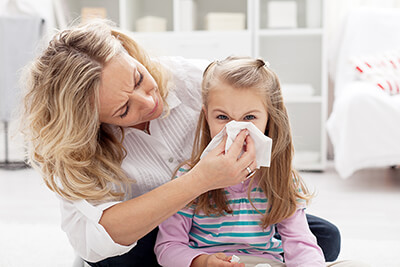Can Air Conditioning Trigger Asthma?
 Do you regularly experience asthma attacks? If the answer is yes, you probably know the asthma triggers including pets, pollen, dust mites, and mold. People suffering from asthma have sensitive airways, and then they are exposed to any of the above triggers their airway will swell up, tighten and then stimulate the production of excess mucus. They will then have trouble breathing and start wheezing and develop nasal congestion and itchy eyes. In the summer heat, spending hours in air-conditioned rooms might feel like what you need, but it can trigger an asthma attack.
Do you regularly experience asthma attacks? If the answer is yes, you probably know the asthma triggers including pets, pollen, dust mites, and mold. People suffering from asthma have sensitive airways, and then they are exposed to any of the above triggers their airway will swell up, tighten and then stimulate the production of excess mucus. They will then have trouble breathing and start wheezing and develop nasal congestion and itchy eyes. In the summer heat, spending hours in air-conditioned rooms might feel like what you need, but it can trigger an asthma attack.
How Do Air Conditioners Trigger Asthma Attacks?
Mold often grows unnoticed in the air conditioner, and it will be spread throughout the house once you switch on the unit. Mold is one of the worst triggers of asthma, and you can have an asthma attack when you use the air conditioner. Mold requires a wet environment to thrive, and air conditioners allow moisture and other debris to accumulate in the air handler. Mold growing in the air conditioning is blown out of the vents and then settles on other surfaces and starts a new colony.
Identifying Mold in Your AC
Most people will not realize they have mold in their AC unit until it is too late. However, you can identify mold when you are replacing the air filter or when you are clearing debris from the evaporator coils. Your HVAC technician can identify mold when they are performing routine maintenance or system repairs.
How to Prevent Mold from Growing
Clean the drain pans. When the drain pans are dirty, and they do not drain properly, they can be the ideal place for mold to grow. To prevent this ensure that the pans are always clean. Inspect them regularly to avoid buildup of debris and water.
Regularly replace the filter. When you are using an old and dirty filter, it does not trap particles, and they spread throughout the house. Ensure you replace the filter at least once every month and ensure that it fits snugly with no gaps around it. Changing the filter also gives you a chance to identify mold growing in you air conditioner.
Ensure the ducts are clean and dry. Wet and dirty ducts offer an ideal ground to grow mold. Clean the ducts and ensure they are dry. Identify the source of water to prevent the problem from recurring.
Your Cooling Experts
If you need air conditioning repair or maintenance, call General Heating & Air Conditioning Inc. They are experts and will help you identify if you have a mold problem and they will give you tips on how to prevent mold.
